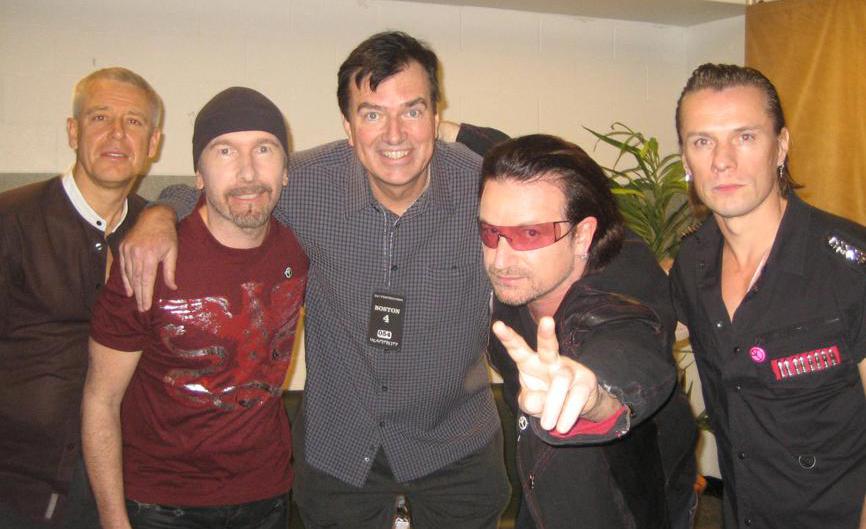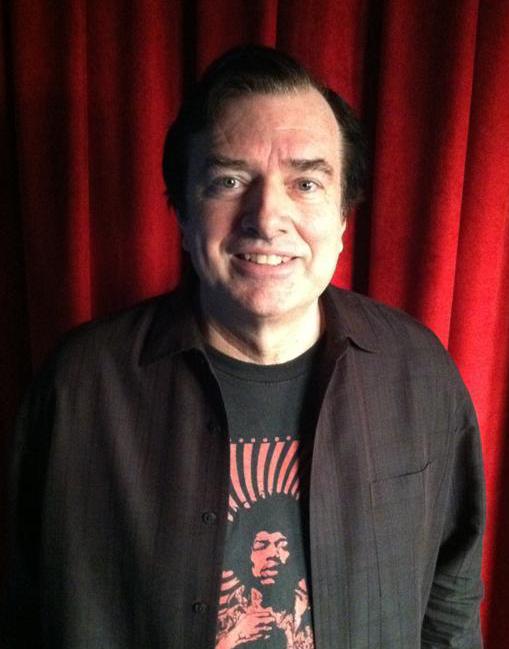
As a half-century of musicians knew, Boston Globe critic Steve Morse loved live concerts. By his recollection he went to 250 annually, which might have been a low estimate. He also prolifically wrote interviews and record reviews, and once said his highest total was 431 bylines in a single year.
Still, among rock, pop, and folk performers who filled concert venues, “everyone has a Steve Morse story because he was omnipresent for us,’’ said Peter Wolf, the J. Geils Band lead singer who had looked out from the stage to see him in decades of audiences. At 6 feet 5 inches or slightly taller, Mr. Morse was easy to spot in a crowd.
Upon returning to the office late at night, when the Globe’s first edition was already rolling off the presses, Mr. Morse indulged in another love: deadline writing. “I thrive under extreme pressure,’’ he said in a 2018 interview posted on themedianarrative.com website. “I’m just one of those guys that can do it.’’
With 45 or fewer minutes to capture in 600 words what he had just heard and seen, Mr. Morse would devote the first 20 minutes to making the first paragraph work, “and then everything flowed from there and I banged the rest of it out in 20 minutes,’’ he said. “It was kind of an unusual way of working, but I trusted it and it was effective for me.’’
Mr. Morse, who also drew admiration for his dedication to his adult son, Nick, who is mostly nonverbal and an accomplished artist, died late Saturday in Care Dimensions Hospice in Lincoln. He was 76, had lived in Cambridge for many years, and was diagnosed with cancer less than two weeks before his death.
In a tenure unlikely to be matched soon, if ever, Mr. Morse was the Globe’s chief rock critic from 1978 to 2005, and freelanced reviews to the Globe before and after, until June of this year. His Globe articles alone appeared for nearly five full decades, and he previously had been a freelance writer elsewhere for a couple of years.
“Steve had been covering the waterfront for so long that he became an important part of the music community at a time when what the critic wrote had meaning and influence for the public,’’ Wolf said, “and Steve certainly had that.’’
Mr. Morse was also a mentor to aspiring music writers, helping to steer freelance assignments to younger journalists, and he was a valued colleague at the Globe.
“Steve’s deep knowledge coupled with his utter lack of pretension made him a rarity among rock critics,’’ said Joan Anderman, a former Globe rock critic who had been his colleague. “He didn’t aspire to be cool or come off as arrogant. He felt privileged to have an important role in the media and the music world. At the end of the day, or night, in Steve’s case, he remained a true fan, and the joy he found in music drove his work.’’
Former Globe rock critic Sarah Rodman, who now works at Netflix, saw in Mr. Morse a kindred journalist in their approach to reviews.
“We were going to tell you who played, what they played, where they played, and how we felt about it,’’ she said. “We were reporters at heart.’’
Globe theater critic Don Aucoin, who had shared an office with Mr. Morse, said that “on the personal side, there was just an innate decency to the man. For all of his stature — figuratively and literally; he had to be one of the tallest rock critics who ever lived — there was not an iota of pretentiousness about Steve.’’
Stephen P. Morse, the older of two siblings, was born in Boston on Sept. 22, 1948, and was 8 when his family moved to Wellesley.
His mother, Marjorie Pugsley Morse, was a homemaker, and his father, Walter Prince Morse, was a wool buyer.
Mr. Morse graduated from Wellesley High School and Brown University, and though his father hoped he’d go to law school, “I had no interest,’’ Mr. Morse said in the 2018 Media Narrative interview.
He taught high school sociology and psychology for two years before beginning to write freelance reviews, until he landed the full-time Globe gig.
Mr. Morse’s fiancée, Jessa, and his sister, Cindy Carbeau of Millis, announced his death on Facebook Sunday. “Words cannot fully express our feelings of loss and deep sorrow,’’ they wrote.
They, along with his son, Nick of Watertown, are Mr. Morse’s immediate survivors. Per his wishes, his family plans to hold a private service.
Nick was born when Mr. Morse was married to Nell Rotow Morse. She died from complications of diabetes in 2001, when Nick was young. More than just a single father, Mr. Morse became champion of his son’s artwork, heralding his finished pieces and exhibitions on social media.
“Art has given him so much satisfaction and self-esteem,’’ he said when Nick was featured in the Globe in April.
In 2005, Mr. Morse took a buyout from the Globe and retired. In early December that year, he was feted at J.J. Foleys’ bar, and U2 lead singer Bono stopped by after the band’s TD Banknorth Garden show that evening to toast Mr. Morse and praise his work.
In the years afterward, he taught rock history at the Berklee College of Music. He also returned to his writing roots by freelancing for the Globe.
Mr. Morse was inducted into the New England Music Hall of Fame in 2023, and he had served for several years on the national Rock and Roll Hall of Fame nominating committee.
“I like hard rock,’’ he said in a video interview posted on a Berklee website.
“I was the first one to nominate AC/DC when they became eligible. I’m sort of proud of that,’’ he said. “I couldn’t get in a couple of other choices. I tried to get in the J. Geils Band.’’
Wolf said Mr. Morse’s championing of Boston-area bands was a characteristic and enduring trait.
“His love and support for musicians didn’t stop once he left the Globe,’’ he said. “He was continually showing up at shows and clubs to still support many artists as they all tried to endure through the ever-changing landscape.’’
Mr. Morse, Wolf added, “meant a lot to me and to all of us for what he did.’’
Although the thousands of 600-word reviews Mr. Morse wrote over the decades made up a week to week, 50-year history of rock music’s evolution from the beginning of the 1970s onward, he took more creative pleasure from recounting his conversations with musicians — on the phone and in person.
“Interviews were my favorite part of the job,’’ he said in the Berklee video.
With reviews, “you go to a concert, you’re not a participant. You know, you’re an observer — you’re kind of commenting on somebody’s else’s work. But when you’re interviewing them, you’re one-to-one, you’re engaged. That’s where the excitement you know comes for me.’’
He interviewed so many luminaries that in the Berklee interview, it seemed easier to ask who he hadn’t spoken with, and wished he had. “Well, I have not interviewed Elton John and I have not interviewed Bob Dylan,’’ Mr. Morse said.
And in a 2006 piece for the Globe, published after he retired, Mr. Morse recalled that he was scheduled to interview John Lennon for the first time in early 1981. Instead, Mr. Morse was among millions shattered to hear the news in December 1980 that the former Beatle had been murdered in New York City.
“Lennon was my idol,’’ Mr. Morse wrote.
“The night he died,’’ he added, “I went to the Globe to write his obituary with fellow music critic Jim Sullivan. We cried as we wrote, but somehow finished for the paper’s late edition.’’
Bryan Marquard can be reached at bryan.marquard@globe.com.

